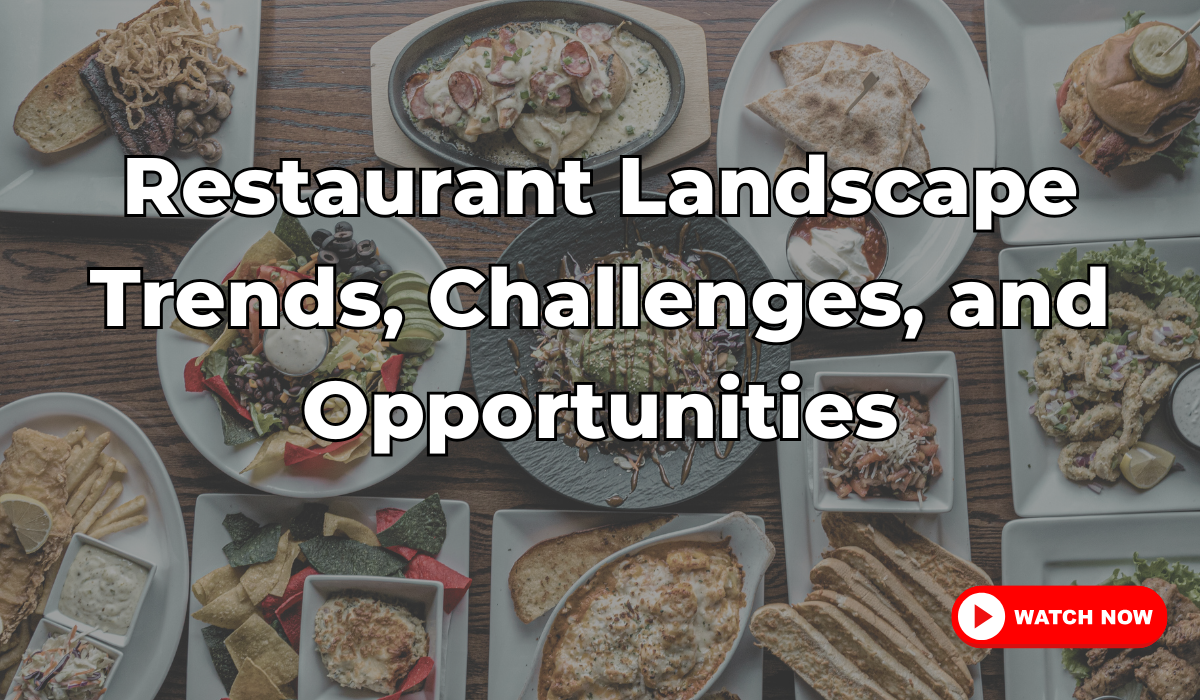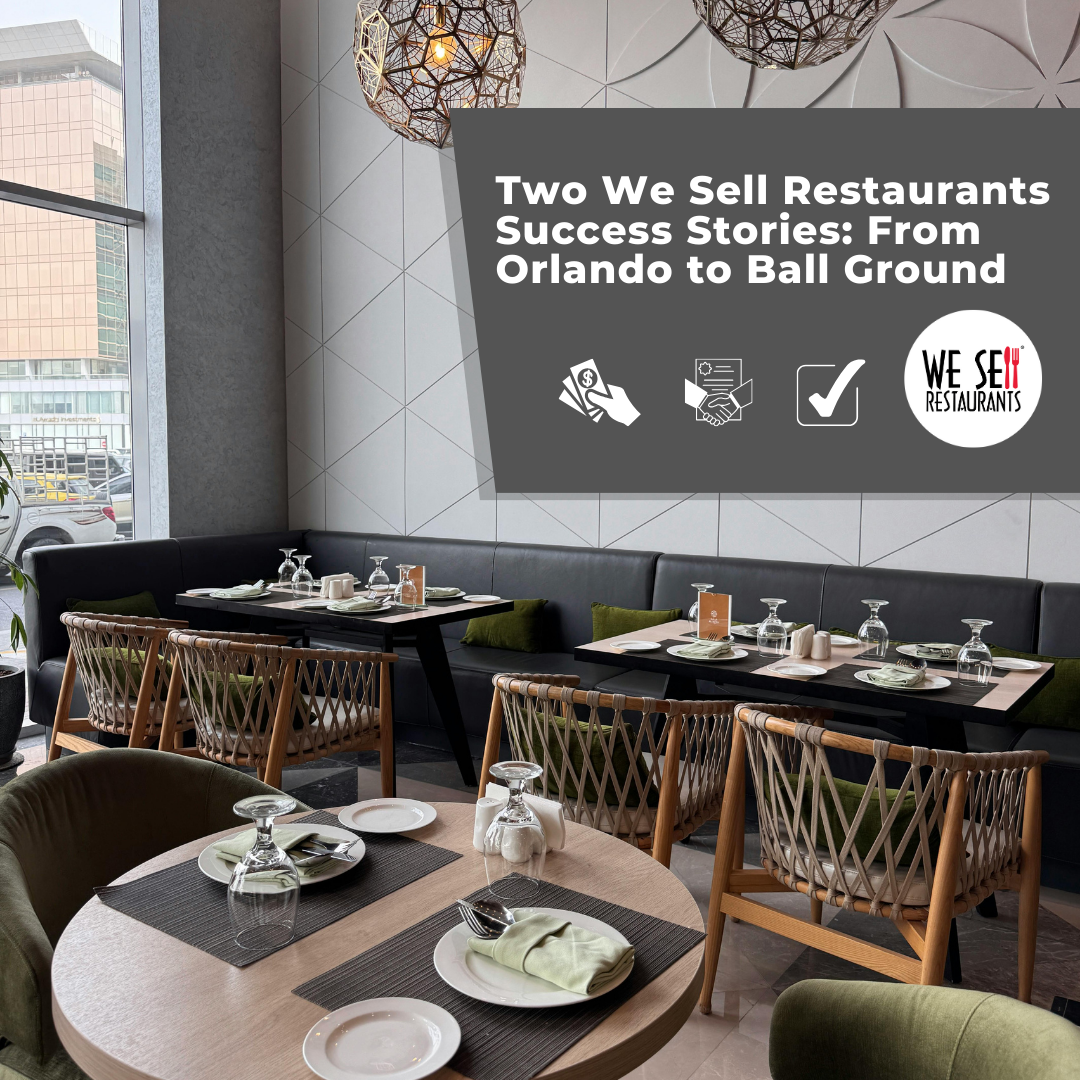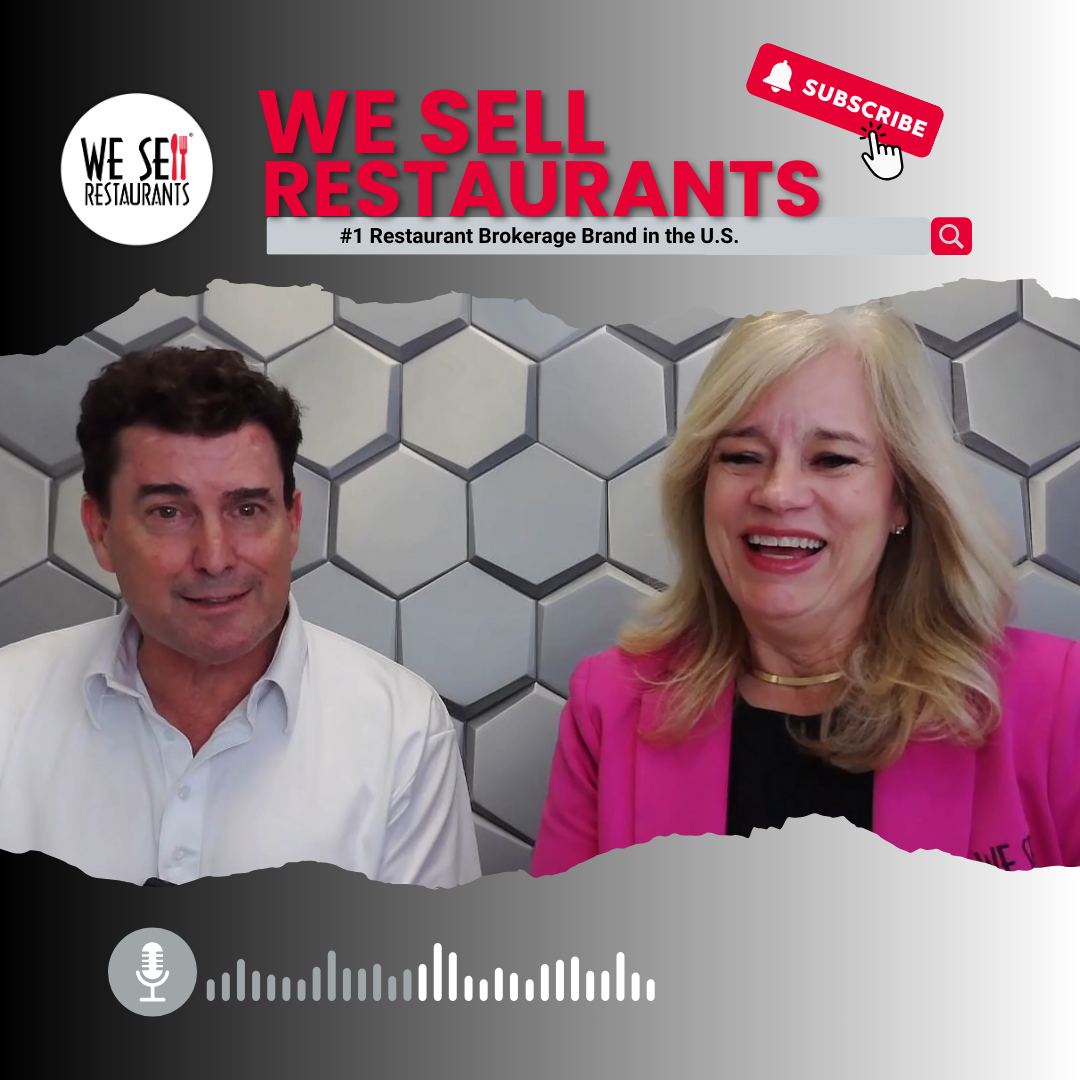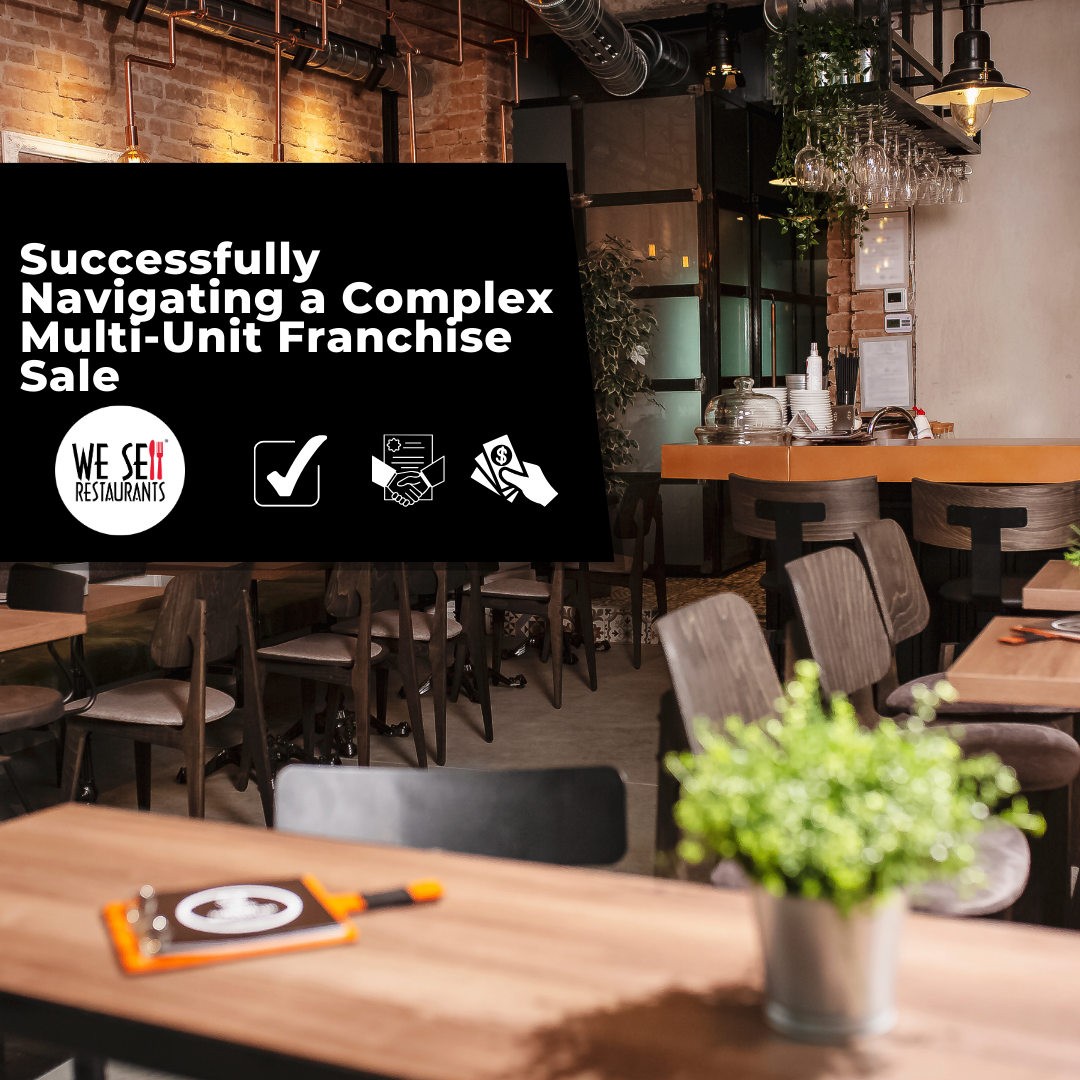The evolving dynamics of the restaurant scene continue and as we see the first quarter of 2025 end, We Sell Restaurants, has an eye on the social, political, and economic landscape that is unfolding for the industry. Many of the items in the news will impact those buying or selling a restaurant, ranging from consumer behavior to the economic outlook.
This article wraps up brands that are in the news along with the bigger picture of the industry overall and how it is being impacted by significant trends. We’ll close with our insights on how We Sell Restaurants provides essential services to buyers, sellers, and franchisors amidst the ever -changing environment providing tips on how restaurant buyers and sellers can navigate the process this year.
What a Difference a Quarter makes – Egg Prices Sharply Down
In January 2025, egg prices rose sharply by 13.8%, following an 8.4% increase in December 2024. February saw another surge, with prices with prices increasing by 10.4% month-over-month, bringing the average price to $5.90 per dozen in U.S. cities to $5.90 per dozen. Year-over-year, egg prices were up 58.8%. The impact of eggs on the restaurant industry saw brands from IHOP to Waffle House implementing surcharges. With the heavy reliance for the industry ranging from breakfast staples, to baking and pastry along with binding and coating, it seemed one more way the industry was to be hammered again.
By March, however, egg prices dropped rapidly. Wholesale prices feel from $8 per dozen at their peak to between $2.70 and $4.15 per dozen nationally. Retail prices followed suit, declining as well. First quarter ended strong with eggs once again starting to hit normal levels, good news for the restaurant industry.
Changes at the SBA – Affecting Restaurant Buyers and Sellers
There is a new head of the Small Business Administration or (SBA) and they are rolling out changes that will affect restaurant buyers and sellers. The U.S. Small Business Administration (SBA) has rolled out significant updates to the eligibility criteria for its loan programs, focused on ownership and citizenship. These changes are big for borrowers from out of the country. Restaurant buyers, that are foreign investors or non-permanent residents are subject to the new rules.
These are the new ownership requirements. Businesses seeking SBA 7(a) or 504 loans must now be 100% owned by U.S. citizens, U.S. nationals, or Lawful Permanent Residents (LPRs). Previously, the SBA permitted up to 49% foreign ownership, offering flexibility for international investors. Under the new rules, any ownership stake held by foreign nationals-including those on valid work visas like the E-2-renders a business ineligible for SBA financing. This shift eliminates a once-common pathway for foreign entrepreneurs to leverage SBA loans in the U.S. restaurant market.
In other changes to the SBA lending process. Effective March 27, ALL SBA loans will incur an SBA guaranty fee. Historically, this fee applied only to deals with term loan exposure exceeding $1 million. Now, regardless of loan size, borrowers will face this additional cost, which covers the SBA’s guarantee to lenders against default. For restaurant buyers, this change increases the upfront expense of financing, potentially affecting smaller transactions that once avoided the fee
Other Regulatory Changes Afoot – Washington DC Restaurant Scene
Washington DC is looking to repeal their regulation I-82 which pushed the minimum restaurant wage up to $17.50 and eliminated the normal practice of lower wages plus tips going to the employees. After three years, the Restaurant Association of Metropolitan Washington is asking legislators to repeal this act. They say it has led to widespread issues including restaurant closures, Job and revenue loss and a talent drain from the restaurant industry. Before this was implemented, it was common practice in D.C. and liIke much of the U.S. for tipped employees to be paid a lower base salary, assuming tips would meet — and often surpass — minimum wage. If not, businesses are legally required to make up the difference.
Also occurring in DC and set to affect more than just DC restaurants, is President Trump’s campaign promise for “no tax on tips.” The House passed a budget resolution on February 25, 2025, with a narrow 217-215 vote, outlining $4.5 trillion in tax cuts (including tips) offset by $2 trillion in spending cuts. This non-binding blueprint sets the stage for future tax legislation via reconciliation, which only needs a simple majority. Senate Republicans, led by Majority Leader John Thune, are pushing a "current policy" baseline to make extending tax cuts—including no tax on tips—easier by not counting them as new costs. House Speaker Mike Johnson has signaled openness to this, which could streamline passage without drastic spending cuts.
Overall Economy
The Fed paused it’s rate-cutting cycle, maintaining the federal funds rate of 1.25 – 4.50% across all three meetings in first quarter. This stability is good for restaurant buyers. The Fed is expected to remain cautious, with a likely hold at 4.25%–4.50% through at least May (next meeting on May 6–7). Analysts from Morningstar and Bankrate predict the next rate cut might not occur until mid-2025, possibly dropping the rate to 4.00%–4.25% if inflation cools toward 2.2% (projected for year-end)
There is uncertainty in the economy that’s been reflected in a rollercoaster ride for investors in the stock market with some tough March 2025 days however, most of this uncertainty is tied to tariffs. Tariffs have little impact on the restaurant business overall since because their food sources are primarily U.S. based However, tariffs on imported goods like produce, seafood, coffee, and alcoholic beverages from countries such as Mexico and Canada could indirectly increase costs for restaurants.
Shifts in Consumer Dining Behavior
Economic pressures are influencing consumer dining habits, with many opting to purchase premium steaks from supermarkets rather than dining out. Supermarkets like Coles and Woolworths have reported increased sales of high-quality cuts, such as scotch fillet and grass-fed options, as consumers seek to replicate restaurant-quality meals at home at a fraction of the cost. This trend highlights a growing preference for home-cooked gourmet experiences over traditional dining out, prompting restaurants to reassess their value propositions and pricing strategies.
Opportunities and Challenges Ahead
According to Synergy Consultants, the restaurant industry is poised for significant growth and transformation in 2025, driven by consumer demand, technological advancements, and evolving dining habits. The sector is projected to add 200,000 jobs, bringing total industry employment to 15.9 million. However, operators must navigate challenges such as rising labor costs and economic headwinds while capitalizing on opportunities presented by technological innovations and changing consumer preferences.
Insights from the James Beard Foundation
The James Beard Foundation’s 2025 Independent Restaurant Industry Report found that 54% of independent restaurants rated their 2024 performance as excellent or good, an improvement over last year. At the same time, more than 9 in 10 (91%), raised menu prices last year but the increases were moderate (in the 5-10% range). Of the independent restaurant surveyed, 72% reported consumer traffic that was flat or falling. While still dealing with labor issues, restaurants offering career growth had a 350% better retention rate.
Expert Perspectives on Emerging Trends
Experts anticipate several emerging trends in 2025, including a heightened focus on sustainability, increased adoption of technology and automation, and a shift towards more personalized dining experiences. Understanding these trends is crucial for operators aiming to stay competitive in a rapidly evolving market.
How We Sell Restaurants Supports Buyers, Sellers, and Franchisees
At We Sell Restaurants, we recognize that navigating these industry shifts requires expert guidance and strategic planning. Our Certified Restaurant Brokers® are focused on helping restaurant buyers, sellers, and franchises capitalize on market opportunities while dealing with the most current challenges to the industry.
For Restaurant Sellers
Restaurant owners are providing a streamlined sales process, valuation, and marketing that leads to the highest pricing and values for the business. Our expert brokers evaluate financials, conduct market analysis, and create compelling marketing strategies to attract serious buyers while safeguarding the confidential nature of the transaction.
For Restaurant Buyers
Those seeking to buy a restaurant benefit from the largest inventory of restaurants for sale online, along with expertise on turnaround strategies, opportunities for improvement, and acquisition strategies. Certified Restaurant Brokers® work closely with buyers to match them with the right opportunity, conduct due diligence, and negotiate the deal into a purchase agreement. Buyers can use our Restaurant Assessment Tool to determine the right fit for their situation.
For Franchisees
We Sell Restaurants offers franchise opportunities for those looking to enter the restaurant brokerage industry. With the restaurant market projected to grow, becoming a We Sell Restaurants franchisee provides access to a proven business model, extensive training, and a support network to help individuals build successful brokerage businesses in their local markets. You can learn more about becoming a franchisee of We Sell Restaurants at this link.
March 2025 has brought to light a dynamic array of developments within the restaurant industry, encompassing ambitious expansion plans, shifts in consumer behavior, regulatory changes, and sustainability initiatives. While challenges persist, opportunities abound for those who adapt to industry trends and leverage expert guidance. At We Sell Restaurants, we are committed to helping restaurant buyers, sellers, and franchisees navigate these changes and achieve their goals in this ever-evolving landscape.

 404-800-6700
404-800-6700









